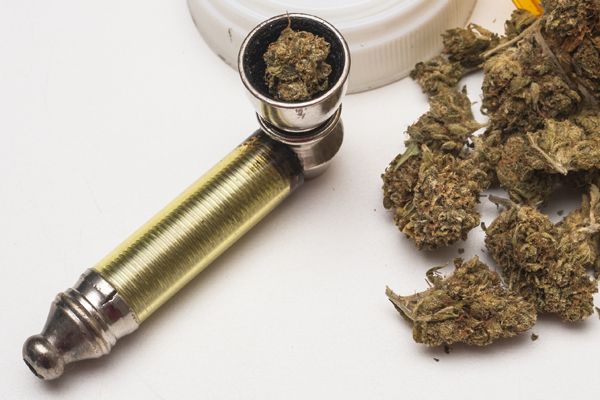In states like Utah, unlawful marijuana possession is at an all-time high (no pun intended ). With the latest success of pot legalization in states just like Colorado, progressives are more bothered than ever before with the distinct political gridlock in Washington and are preparing for a major ballot initiative to push across the country. They are relying on an ideal electorate in 2016, with a multitude of parties now aiding issues like background inspections for weapons, boosting the minimum income, and supporting marijuana legalization.
Organizations are now far more optimistic after the substantial triumph of progressive ballot initiatives presented to the conservative bloc of voters in 2014. In 2016, the more youthful, more liberal voters are anticipated to turn out in droves, and make more major victories. Mandates like gun control, economic fairness issues (including paid sick leave and equal pay), and marijuana legalization are estimated to surpass those of 2012. This is a straightforward indication that liberals are allowing a state-based model that allows them to circumvent the legislature and Congress.
Conservatives, on the contrary, are not taking this casually and are pledging to set an end to the momentum with a set of contending ballot propositions. However, pot legalization advocates approach, especially, is presumed to do quite effectively, presented the jarring demographic variances between midterm and presidential years.
“Especially with gridlock in Washington and fewer states likely to address the minimum wage legislatively, we’re likely to see more ballot initiatives on the minimum wage and other progressive economic issues,” announced Paul Sonn, general counsel at the National Employment Law Project, an organization that has assisted minimal pay pushes across the U.S. Sonn’s statement reflects on the midterm election, in which the GOP took back the Senate and made notable gains in the House. It was the smallest voter yield since 1942, with much younger and minority voters comprising a much smaller sized percent of the voting pool.
Things are looking even more ideal now for progressives, as minimum-wage-hike success sweep across four hardened red states on November 4th– including, Arkansas, Alaska, Nebraska, and South Dakota. Sonn, however, feels positive that the rise in economic ballot propositions will boost turnout much more than in the last election phase. Even though Sonn can not accredit which new initiatives will be on the ballot, he did say that states like Colorado, New Mexico, Maine, Missouri, and Washington are states where gridlock makes ballot initiatives an appealing option.
According to specialists, compensated sick leave and equal wages propositions are also likely to be on the ballot in 2016. The senior vice president of the Center for American Progress, Arkadi Gerney, introduced the latest trend in economic initiatives is mainly in response to the failings of Congress and state legislatures. They just have not dealt with the decades-long wage stagnation.
Much more than a few marijuana legalization organizations are also preparing for the 2016 election in Arizona, Maine, California, Nevada, and Massachusetts. Heads of these groups also say they have a good shot at being on the ballot in Montana and Missouri, as well. They are hopeful due in part to the legalization of marijuana possession in Oregon and Alaska in 2014, and the legalization of the plant’s use and transfer in Washington, D.C. A constitutional amendment requiring a 60% approval did fail in Florida, which would have allowed the use of medical marijuana, but it still pulled in a massive 58%of the vote.
The communications director for the Marijuana Policy Project, Mason Tvert, said the group’s forceful push is also because of the gridlock in state legislature, saying, “In the legislature, you can have a majority of elected officials in support, but it might be held up for five years due to one or two legislators, or a governor threatening a veto.”
It’s real that the nation appears to be more pro-pot as the years keep going, but these updated campaigns will not be won without a fight. 2012 brought success in states like Colorado and Washington (the first two states to legalize small marijuana possession), but there likewise were some substantial deficits. These consist of the embarrassing loss for recreational marijuana legalization in the bluest areas of Oregon.
Anti-marijuana groups are said to be on the counteroffensive. “We are ramping up our efforts,” said Kevin Sabet, who co-founded the anti-legalization Project SAM (Smart Approaches to Marijuana) with former Rep. Patrick Kennedy (D-R.I.). ”It’s clear that we have a lot of work to do. I’m not looking at this with rose-colored glasses,” Sabet added.
Still, he argued that a spending perk was a fundamental cause for legalization successes. Anti-legalization advocates have badly outspent in both Oregon and Alaska this past process.
Sabet would definitely not dismiss some anti-legalization ballot initiatives, either, including those that may possibly tie state marijuana policy to federal policy, where halting prohibition would be much more challenging. “All options are on the table,” he said.
Recent Posts
- How To Get The Best Interstate Drug Trafficking Lawyer in Murray WY
- How To Get The Best Interstate Drug Trafficking Lawyer in Logan WY
- How To Get The Best Interstate Drug Trafficking Lawyer in Millard County WY
- How To Get The Best Interstate Drug Trafficking Lawyer in West Jordan WY
- How To Get The Best Interstate Drug Trafficking Lawyer in Cache County WY

